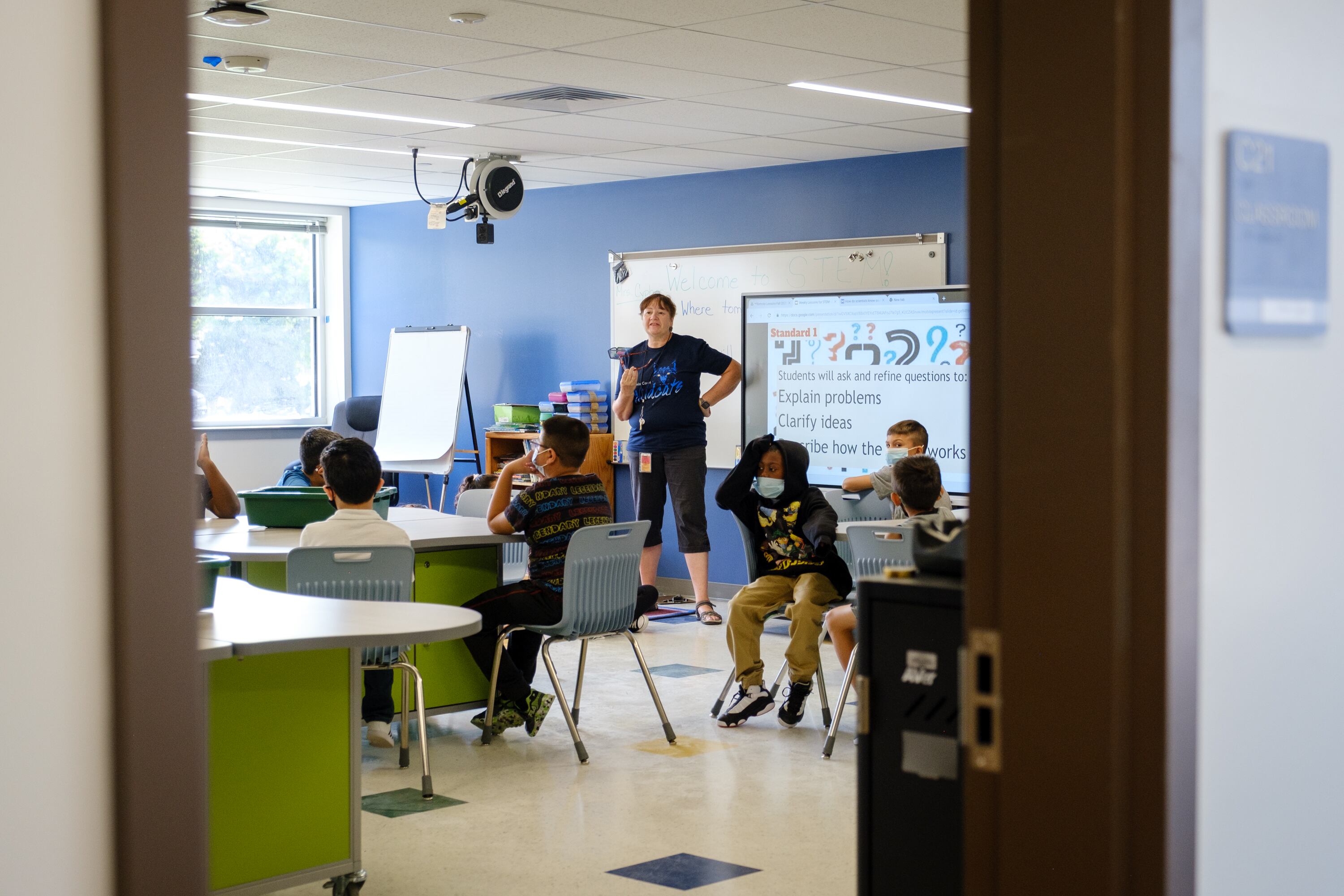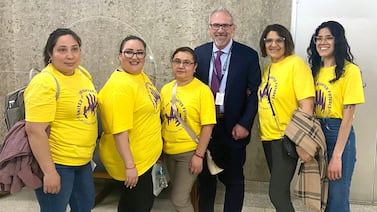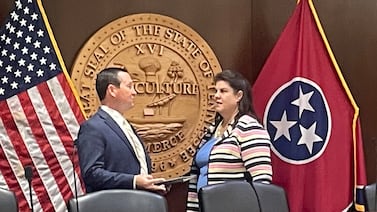Facing pandemic burnout, two out of three Colorado educators have said they are considering leaving the profession, according to a new Colorado Education Association report.
That’s up by two-thirds since a survey released last December showed 40% of the union’s members considered changing careers. The updated educator burnout numbers released Tuesday are included in a new CEA report focused on the state of Colorado’s education system.
The report depicts an even more dire situation for educators since the beginning of the pandemic and focuses on three problem areas for the state. They include poor K-12 investment that has kept the state among the worst when it comes to wages, student funding, educator burnout, and a shortage of teachers, CEA President Amie Baca-Oehlert said during a news conference Tuesday about the report.
“While the ongoing COVID-19 pandemic has taken a toll on educators, students, and families for nearly two years, the problems facing public education in Colorado predate the pandemic,” she said.
Educator burnout, however, continues to grow as the pandemic wears on. The report says that only 1% of CEA’s members feel valued by state leaders and 10% said they feel valued by their school districts.
While many have predicted a massive wave of teachers leaving the profession, that hasn’t been the case quite yet. Nonetheless, the union said they’re seeing more positions go unfilled than in previous years. The spike in educators who expressed they’re considering leaving the job creates warning signs that teacher shortages could worsen.
During the news conference, district union presidents and educators said schools have faced substitute shortages, larger classroom sizes, less planning time, and fewer classroom support staff.
Jefferson County Education Association President Brooke Williams said more and more educators have reported they can’t handle the classroom stress.
“When teachers were asked what they do to deal with stress, some said, ‘I cry. I stress eat. I don’t have time to exercise.’“ Williams said.
Baca-Oehlert said systemic changes need to occur if the state and districts are to keep teachers in the profession, especially when teachers can find better pay in other professions.
Pay has remained a central issue among teachers, with almost 60% saying adequate pay and benefits will help make them feel valued and respected. Autonomy and working conditions also ranked high in what would help educators feel valued.
Gov. Jared Polis wants Colorado to increase education funding to record amounts this fiscal year, but union leaders have said even that would not be enough to make up for years of underfunding. Baca-Oehlert said the state progress in education funding has only patched “a gushing wound.”
Baca-Oehlert said the union will continue to push for increased funding for teacher compensation, classroom resources, and more staff.
As for local solutions, Jefferson County Education Association President Brooke Williams said schools can work on providing teachers time to juggle tasks like lesson planning. Williams said school district leaders also can do more to help address student needs and behaviors.
John Robinson, Poudre Education Association president, said districts could prioritize more paid teacher work days to alleviate teacher schedules.
At both the state and local level, more needs to be done, said Denver Public Schools English teacher Amber Wilson, who is also CEA secretary-treasurer. She said the pandemic has made stress levels and work conditions unbearable at times for teachers.
“We give and we give and we give until we can’t give any more,” Wilson said. “Then ultimately we realize we’ve given so much that we’re broke — we’re broken.”








